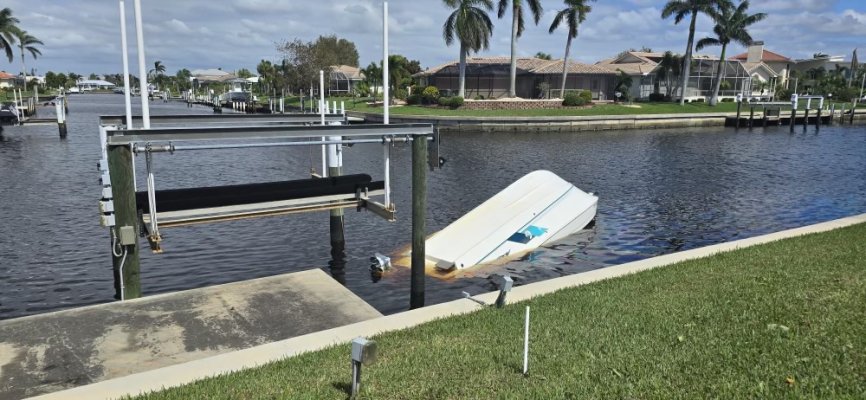The nature of insurance is to syndicate risk. If you want to only underwrite your own risk, don't get insurance. It's a choice and risk.
My wife and I talked as driving to our house to work this morning. We lived and worked all over the country. I had long-term assignments in almost every corner. NYC, Washington DC, Los Angeles, Charlotte, Houston, Detroit, Denver, and a bunch of smaller assignments elsewhere. What we both love about Florida compared to all the other places is the constant sunshine. Ive heard it called Kodachrome. The blues are so blue, the greens are so green. When I worked in Texas, everything was a shade of brown. NYC and Detroit, grey. The only place that rises near Florida is Colorado, or perhaps northern New Mexico.
We just made our first home cooked meal - breakfast sandwiches with chibata rolls toasted on the Weber Q. Small victory but a meaningful one for us. Progress in very small steps.
Peter
Know what you are talking about.
Since I was a kid... the palms over white beaches, sunsets, gigantic thunderheads at the horizon illuminated by flickering lightning, clear waters and on and on.
The USCG was kind enough to let me live (not visit) several places NJ to FL to AK and sightsee almost every inch of coastline between all those points at a gret viewing height. People asked me which was my favorite place to live and I always responded... "they all were great"...looking for the good, every place had merits and detractors. I never focused on the detractors.
When the kids grew up so all of a sudden, choosing a place to live became complicated. My solution(s) boats and RVs, no permanent place to hold me so I can enjoy the best of all states and visit family/friends at will.
But my heart still beats best in the area those dreams as a kid I had....the tropics but still in the USA. I am just the type to not risk a lot that can be flooded, blown down, shook to pieces, burnt to an ash, buried in mud/snow/rocks etc.... etc. so not owning a home is my answer. Don't like the weather? Travel. Don't like the neighbors? Move. Don't like anything...well the flexibility is great.
Everyone can like what they like, but weighting opinions to convince others seems SO typical these days from so many directions.
Enjoy what you have or resolve your displeasure....doesn't mean others have to follow your dreams or fears.
As far as insurance risks.... I just came back from a 3.5 month FL to Seattle and back RV trip. It's laughable to think there is many places in the USA that may never see mother nature's disasters. True there are REALLY bad places to build a home...and those people who chose to live in those areas should realize that and accept what may come. I realize that many aren't in positions to choose alternatives and my heart goes out to them...but in a world of grief, they are just a tiny part of all misery. Some people should never own a boat either, but we all help insure them. Beat life, don't let it beat you is the only answer.


